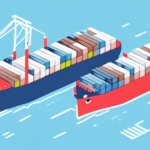Switching Fulfillment Companies: What You Need to Know
In the world of ecommerce, choosing the right fulfillment partner can make or break your business. Your fulfillment company is responsible for storing, packing, and shipping your products to your customers. They are the backbone of your delivery operation. However, if your current fulfillment company is not meeting your expectations, it may be time to consider switching to a new partner.
Why Switching Fulfillment Companies May Be Necessary
There are several reasons why ecommerce businesses switch their fulfillment companies. Some businesses outgrow their current fulfillment provider, while others experience service issues that affect the customer experience. Common reasons for switching fulfillment companies include:
- Inconsistent or slow shipping times
- Order fulfillment errors
- Low inventory accuracy
- Poor customer service
- High fees or pricing structure
According to the Forbes Tech Council 2022 Report, 78% of ecommerce businesses cite fulfillment accuracy as a key factor in retaining customers.
Whatever your reason for considering a switch, partnering with the right fulfillment company can have a major impact on your business's success.
Assessing Your Current Fulfillment Company
Before starting your search for a new fulfillment company, it is essential to take a close look at your current provider. Consider the following questions:
- What specific issues have you experienced with your current fulfillment company?
- What does your current pricing structure look like?
- What kind of technology does your provider use?
- How accurate is your inventory tracking?
- What are the shipping times and rates?
By understanding your current provider's strengths and weaknesses, you can better evaluate potential new fulfillment partners. Reference studies like the Investopedia Guide on Fulfillment Center Transition for detailed assessment criteria.
Another important factor to consider when assessing your current fulfillment company is their customer service. How responsive are they to your inquiries and concerns? Do they have a dedicated account manager who is readily available to assist you? Are they proactive in addressing any issues that arise? These are all important questions to ask when evaluating the level of customer service provided by your current fulfillment partner.
Factors to Consider Before Switching Fulfillment Companies
When considering a new fulfillment partner, there are several factors to keep in mind:
- Scalability: Is the company equipped to handle growth?
- Location: Does the provider have strategically located warehouses close to your customer base?
- Technology: What software and platforms does the company use?
- Communication and customer service: How responsive is the company to your needs?
- Cost: What is the company's pricing structure?
Each of these factors is important in choosing the best fulfillment partner for your business. It is essential to match your business's needs with a provider's strengths.
Another important factor to consider is the fulfillment company's experience and expertise in your industry. It is beneficial to work with a provider that has experience in handling similar products and understands the unique challenges of your industry. For insights, refer to the CIO Article on Fulfillment Expertise.
Additionally, it is important to consider the fulfillment company's shipping capabilities. Can they handle international shipping? Do they offer expedited shipping options? These are important questions to ask to ensure that your customers receive their orders in a timely and efficient manner. The UpCounsel Guide on Ecommerce Fulfillment provides detailed considerations.
Finding a New Fulfillment Company: Where to Start
When looking for a new fulfillment company, there are several ways to start your search:
- Referrals: Ask other businesses within your industry for recommendations.
- Online directories: Use online directories to find a list of potential fulfillment providers.
- Industry events: Attend industry events and conferences to meet potential providers face-to-face.
Once you have a list of potential companies, start by looking at their websites to see if they meet your needs. From there, reach out to each of them to request a proposal.
It's important to consider several factors when evaluating potential fulfillment companies. Look for a provider that has experience in your industry and can handle your specific needs, such as shipping to certain regions or handling fragile items. Additionally, consider their pricing structure and whether it aligns with your budget. Don't forget to also ask for references and read reviews from other businesses who have worked with them in the past.
Evaluating Potential Fulfillment Partners: Key Criteria to Consider
Once you have received proposals from potential fulfillment companies, it is time to evaluate them based on key criteria:
- Experience: Does the company have experience in your industry?
- Services offered: Does the provider offer the services you need?
- Infrastructure: Does the provider have the equipment, software and staff to handle your needs?
- Flexibility: Can the company adapt to your changing business needs?
- Pricing: What is the company's pricing model?
Take your time evaluating each provider to make sure they meet all of your needs. Don't be afraid to ask plenty of questions and seek clarification on any issues that are unclear.
Another important factor to consider when evaluating potential fulfillment partners is their location. If your business is located in a specific region, it may be beneficial to work with a provider that is also located in that region. This can help reduce shipping costs and improve delivery times. The Business News Daily on Fulfillment Services provides a comprehensive overview.
Additionally, it is important to consider the provider's customer service and communication. You want to work with a provider that is responsive and easy to communicate with, especially if any issues or concerns arise. Look for a provider that offers a dedicated account manager or customer service representative to ensure that your needs are being met.
Understanding Fulfillment Pricing Models: Which One is Right for You?
When evaluating fulfillment providers, it is important to understand the different pricing models they use:
- Per order: A provider charges a fixed fee for each order they fulfill.
- Per item: A provider charges a fee for each item or SKU they fulfill.
- Monthly or annual fee: A provider charges a recurring fee to use their services.
The best pricing model for your business depends on your order volume and budget. Make sure to compare pricing models from different providers to see what will work best for you. The Shopify Guide on Fulfillment Pricing offers valuable insights.
Another important factor to consider when choosing a fulfillment provider is their location. If your business is based in a certain region, it may be more cost-effective to choose a provider that is located nearby. This can help reduce shipping costs and delivery times, which can ultimately improve customer satisfaction.
In addition to pricing and location, it is also important to consider the level of customization and flexibility a fulfillment provider offers. Some providers may offer more personalized services, such as custom packaging or branding options, while others may have more rigid processes in place. Make sure to choose a provider that aligns with your business needs and goals.
Negotiating with Potential Fulfillment Companies: Tips and Strategies
Once you have narrowed down your list of potential partners, it is time to start negotiating. Try the following tips to get the best deal:
- Ask about discounts: Many providers offer a discount for high-volume orders.
- Be honest: If you are considering multiple providers, let them know. This may encourage them to offer better pricing to win your business.
- Flexibility: If the pricing model doesn't fit your needs, ask if the company can be flexible in their offerings.
Remember, finding a good partner is about building a strong relationship. The negotiation process is a chance to see how responsive and flexible a potential provider can be.
Another important factor to consider when negotiating with potential fulfillment companies is their level of experience and expertise. Ask about their track record and success rate with similar clients and products. This can give you a better idea of their capabilities and whether they are a good fit for your business.
It is also important to discuss communication and reporting expectations during the negotiation process. Make sure you are on the same page regarding how often you will receive updates on inventory levels, order fulfillment, and any issues that may arise. Clear communication can help prevent misunderstandings and ensure a smoother partnership.
Making the Transition Smoothly: Best Practices for Switching Fulfillment Companies
Once you've signed on with a new fulfillment partner, it's important to make the transition as smooth as possible:
- Communicate: Keep customers informed throughout the transition process.
- Inventory management: Clear out old inventory before switching.
- Testing: Test the new provider's ability to handle your orders before making the full switch.
Remember, making the switch to a new provider requires effort and planning. Follow these best practices to ensure that everything goes smoothly.
Another important factor to consider when switching fulfillment companies is the level of customer service provided by the new provider. Make sure that they have a dedicated support team that is available to answer any questions or concerns you may have during the transition process. Additionally, it's important to establish clear lines of communication with your new provider to ensure that any issues are addressed promptly and efficiently. By prioritizing customer service, you can ensure that your business continues to run smoothly even during the transition to a new fulfillment partner.
Common Mistakes to Avoid When Switching Fulfillment Companies
Switching to a new fulfillment provider can be a complicated process. Here are some common mistakes to avoid:
- Not fully understanding your current provider's contract and fees
- Not considering all factors when evaluating potential partners
- Choosing a provider based solely on price
- Not testing the new provider's processes before the full switch
- Not communicating with customers about the switch
Avoiding these mistakes can help ensure a smooth transition to a new fulfillment provider.
Customer Service: One important factor to consider when switching fulfillment companies is the level of customer service provided by the new provider. It's important to choose a provider that is responsive and proactive in addressing any issues that may arise. This can help minimize disruptions to your business and ensure that your customers are satisfied with their experience.
Clear Expectations: Another common mistake to avoid is failing to establish clear expectations and timelines for the transition process. It's important to communicate with both your current and new providers to ensure that everyone is on the same page and that the transition is completed in a timely and efficient manner. This can help minimize any potential disruptions to your business and ensure that your customers continue to receive the level of service they expect.
Measuring Success After the Switch: Tracking Metrics and KPIs
After you've made the switch to a new fulfillment provider, it's important to track the following metrics and KPIs to gauge success:
- Shipping times
- Order fulfillment accuracy
- Inventory accuracy
- Customer satisfaction
- Cost savings (if applicable)
By consistently tracking these metrics, you can make data-driven decisions about your fulfillment provider and improve your overall business operations. Consider using tools like Tableau or Power BI for effective data visualization and analysis.
The Future of Fulfillment: Trends and Innovations to Watch Out For
As ecommerce evolves, so do fulfillment operations. Here are some trends and innovations to watch out for in the future:
- Robotics and automation to speed up fulfillment processes
- Blockchain technology to improve inventory tracking and reduce fraud
- Same-day and drone delivery options to incentivize faster shipping
According to the McKinsey & Company 2023 Report, the integration of robotics could increase fulfillment efficiency by up to 30% in the next five years.
Knowing about these trends and innovations can help you stay at the forefront of the ecommerce industry and improve your operational efficiency.
Conclusion
Switching fulfillment companies is no small decision, but it can have a major impact on your business's success. By assessing your current provider, evaluating potential partners based on key criteria, and understanding pricing models, you can find the right fulfillment partner for your needs. Once you've made the switch, follow best practices to make the transition as smooth as possible and consistently track metrics to measure success.






















